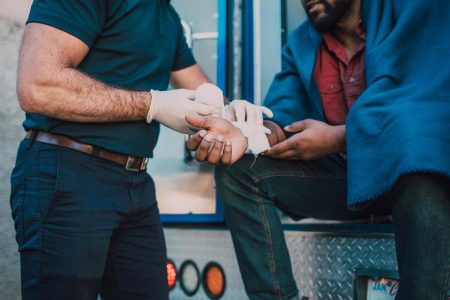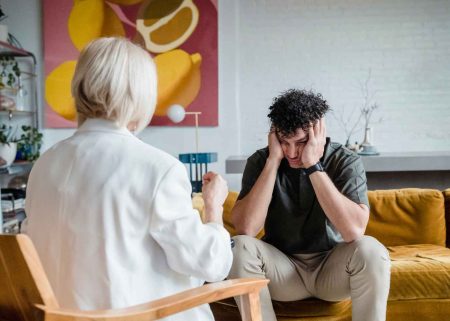Recovery is rarely a journey that happens in isolation. For individuals navigating substance use treatment, especially through outpatient care, having a sense of community can be just as critical as clinical support. Outpatient programs provide structure and therapy, but it’s the connection to others—those who understand, empathize, and walk similar paths—that often makes the difference between temporary improvement and long-term recovery.
As outpatient treatment continues to grow in popularity, one theme remains constant: people heal better when they feel connected. Whether through group counseling, peer mentoring, or shared experiences outside formal sessions, the presence of community helps individuals feel supported, seen, and empowered. In a setting where people are still managing daily responsibilities, the relationships they build during treatment become a vital source of stability and motivation.
Fostering community connection in outpatient programs is invaluable for creating safe and supportive environments. These spaces enable individuals to freely express their struggles without fear of judgment or misunderstanding. Through both group therapy and informal interactions, participants can process their experiences with others who genuinely understand—those who comprehend the burden of cravings, the shame of relapse, and the triumph of achieving a sober milestone.
These shared experiences cultivate a sense of belonging, which is essential in the recovery process. Isolation often feeds addiction, while connection helps to counteract it. In a community setting, vulnerability becomes a strength rather than a liability. As individuals speak openly and listen to one another, they begin to understand that they are not alone and that others have overcome similar obstacles.
Encouraging Accountability and Motivation
Outpatient recovery requires a high degree of self-motivation. Participants typically return home each day, balancing treatment with work, school, or family obligations. In this structure, the presence of a supportive community can help reinforce commitment and accountability. Group members often become informal anchors, encouraging one another to stay the course when challenges arise.
This accountability isn’t about pressure or surveillance—it’s about encouragement. Knowing that others care about your progress can be a powerful motivator, especially on difficult days. When individuals see peers staying clean, showing up, and working hard, they are reminded that recovery is possible, even when it feels out of reach.
Support also becomes reciprocal. As one person advances in their journey, they naturally reach back to uplift others. This exchange of support strengthens everyone involved, fostering a cycle of growth and compassion.
Reinforcing Structure in Everyday Life
While inpatient treatment offers a fully immersive recovery environment, outpatient programs rely on the participant’s ability to integrate healing into everyday life. This integration can be challenging, especially when social circles outside of treatment may include triggers or unhealthy dynamics. Here, the community within outpatient care plays a critical role.
These connections help fill the void left by distancing from old habits or environments. Rather than returning to isolation, individuals can replace it with something positive—relationships built on trust, progress, and shared intention. The rhythms of regular meetings, shared goals, and group milestones add structure to each week, making it easier to stay focused and aligned.
As participants begin to build healthy routines, the support network they’ve developed can offer both encouragement and a sense of normalcy. They don’t need to face the transition alone, and this comfort can make a meaningful difference in long-term recovery.
Supporting Emotional and Mental Health
Recovery is as much about emotional healing as it is about physical sobriety. Many individuals entering an outpatient rehabilitation program are also working through anxiety, depression, trauma, or grief. Without connection, these emotional challenges can become overwhelming. But in a group or peer-supported setting, they become more manageable.
A community can offer the kind of empathy that even the most compassionate clinicians may not be able to provide. Hearing from others who have sat in the same discomfort can be more comforting than advice or instructions. Peer support reinforces that healing is not linear and that setbacks are not failures but rather opportunities for growth.
Moreover, witnessing others work through their emotional struggles creates hope. It becomes easier to believe in one’s own progress when surrounded by people who are doing the same.
Building Confidence Beyond Treatment
One of the lasting benefits of community connection in outpatient programs is the confidence it builds for life after treatment. When individuals are encouraged, supported, and uplifted by their peers, they begin to see themselves as capable—not just of staying sober, but of thriving. This self-belief carries into their careers, families, and friendships.
The tools learned in group settings—communication, empathy, boundary-setting, and resilience—extend far beyond therapy. These interpersonal skills help individuals navigate the complexities of life after treatment with a renewed sense of agency. Community doesn’t just help people recover—it helps them grow.
In outpatient care, the bonds formed are more than temporary. In many cases, they become long-term friendships, support systems, or even the foundation for future advocacy. For those new to recovery, this sense of continuity offers the reassurance that healing doesn’t end with the program—it evolves, supported by the people who were there from the start.










